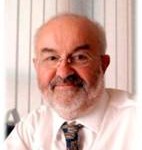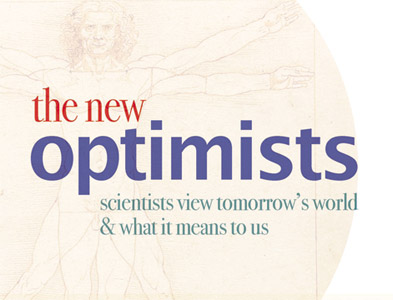Posts Tagged ‘Aston University’
June 15th, 2010
 If we are to meet the targets set by Government, we need to reduce vehicle emissions dramatically and as a matter of urgency, so says Julia King who led HM Treasury King Review and is on the Committee for Climate Change.
If we are to meet the targets set by Government, we need to reduce vehicle emissions dramatically and as a matter of urgency, so says Julia King who led HM Treasury King Review and is on the Committee for Climate Change.
Professor King, Vice Chancellor of Aston University, is an engineer with over 160 published papers on fatigue and fracture in structural materials, and developments in aerospace and marine propulsion technology. She has held a number of senior posts in both industry and academia.
After sixteen years as an academic researcher and university lecturer at Cambridge and Nottingham universities, Julia King joined Rolls-Royce plc in 1994. At Rolls-Royce she held a number of senior executive appointments, including Director of Advanced Engineering for the Industrial Power Group, Managing Director of the Fan Systems Business, and Engineering Director for the Marine Business.  In 2002 Julia became Chief Executive of the Institute of Physics, and in 2004 she returned to academia as Principal of the Engineering Faculty at Imperial College, London. In December 2006 she became Vice-Chancellor of Aston University.
Tags: Aston University, Climate Change Committee, engineering, HM King Review, julia king, rolls royce
Posted in Living in the natural world, People, The Macrocosm | No Comments »
June 15th, 2010
 Providing everyone on the planet with sufficient energy and water is an unprecedented challenge, which will only increase with a growing population unless we find new ways of meeting this challenge. One solution, says Andreas Hornung, Professor of Chemical Engineering at Aston University, is to use biomass residue (e.g. waste wood, sewage sludge, et al) as an energy source.
Providing everyone on the planet with sufficient energy and water is an unprecedented challenge, which will only increase with a growing population unless we find new ways of meeting this challenge. One solution, says Andreas Hornung, Professor of Chemical Engineering at Aston University, is to use biomass residue (e.g. waste wood, sewage sludge, et al) as an energy source.
Professor Hornung, who is also Head of the European Bioenergy Research Institute, has major research interests in pyrolysis processes from micro-scale to technical application, and in the thermo-chemical treatment of biomass.
Tags: andreas hornung, Aston University, biochar, biomass, chemical engineering, engineering
Posted in Living in the natural world, People, The Macrocosm | No Comments »
June 15th, 2010
 We live in a finite world with finite resources, Professor Tony Bridgwater reminds us. But there are three fundamental sources of renewable energy — the sun, the tides and heat from the earth itself. Biomass captures about three thousand EJ (exajoule) per year through photosynthesis; the future for biomass is wide open.
We live in a finite world with finite resources, Professor Tony Bridgwater reminds us. But there are three fundamental sources of renewable energy — the sun, the tides and heat from the earth itself. Biomass captures about three thousand EJ (exajoule) per year through photosynthesis; the future for biomass is wide open.
Tony Bridgwater is Professor of Chemical Engineering at Aston University , where he leads the Bioenergy Research Group (BERG). His current research interests are on the development of technologies for fast pyrolysis of biomass, and the production of biofuels and chemical products that can be derived from biomass and from the fast pyrolysis liquids. He is Technical Director of the SUPERGEN Bioenergy Consortium supported by the EPSRC, and contributes to several EC sponsored research projects including Dibanet, Biosynergy, Bioenergy Network of Excellence, Bioliquids CHP and Bioref-Integ. He was awarded the European Johannes Linneborn Prize in 2007 for his outstanding contribution to developing energy from biomass, and the North American Don Klass Award for Excellence in Thermochemical Science in 2009.
Tags: Aston University, biomass, chemical engineering, engineering, tony bridgwater
Posted in Living in the natural world, People, The Macrocosm | No Comments »
June 14th, 2010
 Membrane proteins are crucial drug targets in a wide range of diseases. But, because they’re not naturally abundant, explains Roslyn Bill, a Reader in Molecular Biosciences at Aston University, synthetically generated membrane proteins are what’s needed.
Membrane proteins are crucial drug targets in a wide range of diseases. But, because they’re not naturally abundant, explains Roslyn Bill, a Reader in Molecular Biosciences at Aston University, synthetically generated membrane proteins are what’s needed.
Her research and that of her team (see left) is to find effective and efficient ways to synthesise these synthetic proteins in ‘cell factories’, simple host cells which can be grown on a large scale.
Dr Bill was a Fulbright Scholar at the University of Michigan after gaining a First and a PhD at Oxford University, where she also did post-doc work. She was also an Assistant Professor at Chalmers University of Technology in Sweden where she was a start-up shareholder in Gotha Yeast Solutions AB before she came to Aston University.
Her research interests are in understanding the molecular features defining successful protein production in yeasts, with an emphasis on membrane proteins such as water and glycerol channels, tetraspanins and G protein-coupled receptors. Many of these membrane proteins are potential drug targets. Her work is funded by EPSRC, BBSRC and the European Commission and she has worked in collaboration with industrial partners throughout her career, as her research is central to progress in the drug discovery pipeline.
Tags: Aston University, cell factories, molecular biology, roslyn bill
Posted in Changing bodies, People, The Microcosm | No Comments »
June 14th, 2010
 Over the past decade, our ability to precisely measure the dimensions of the eye have greatly improved. This means that optometrists can now make much more accurate calculations for the optimum intracular lens (IOL) power to implant. So explains Professor James Wolffsohn in The New Optimists, also making the point that such technologies could revolutionise people’s lives in developing countries where affordable spectacles are difficult to come by.
Over the past decade, our ability to precisely measure the dimensions of the eye have greatly improved. This means that optometrists can now make much more accurate calculations for the optimum intracular lens (IOL) power to implant. So explains Professor James Wolffsohn in The New Optimists, also making the point that such technologies could revolutionise people’s lives in developing countries where affordable spectacles are difficult to come by.
Professor Wolffsohn is one of the world’s leading researchers in optometry and Deputy Executive Dean for the School of Life and Health Sciences at Aston University.
His research and teaching interests mainly revolve around intraocular lenses, contact lenses, low vision and the measurement of accommodation, having published over 90 peer reviewed academic papers and given numerous international presentations. He is also a past President of the British Contact Lens Association. He has recently published the Low Vision Manual with Professor Jonathan Jackson and an Eye Essentials Series book Imaging.
Tags: Aston University, health sciences, intraocular lenses, james wolffsohn, vision
Posted in Living in the natural world | No Comments »
June 13th, 2010
 The payoff against an increase in life span has been than health span does not necessarily follow suit, says Helen Griffiths, Aston University’s Professor in Biomedical Sciences and Acting Director of Aston Research Centre for Healthy Ageing.
The payoff against an increase in life span has been than health span does not necessarily follow suit, says Helen Griffiths, Aston University’s Professor in Biomedical Sciences and Acting Director of Aston Research Centre for Healthy Ageing.
Before, many people died suddenly from infection. Nowadays, however, women will typically experience the last 9.1 with chronic, debilitating illness, and men 6.8 years. But the routes to solve the puzzle of ageing are being mapped.
Professor Griffiths’ research interests are proteomic approaches to biomarker determination, and the interplay between lips/sphingolipids and reactive oxygen spaces in inflammataion and ageing.
She won the 1st Catherine Pasquier Prize from the European Society for Free Radical Research, and the Aston Excellence Award in 2009 for Outstanding Researcher of the Year.
Tags: ageing, Aston University, biomedical sciences, helen griffiths
Posted in Changing bodies, People, The Microcosm | No Comments »
June 10th, 2010
 Adverse drug reactions are a major cause of hospitalisation, even death. Understanding drug delivery systems, even the creation of new systems, for sure the understanding of pharmogenomic profiling, can be a major force in drug efficacy and safety.
Adverse drug reactions are a major cause of hospitalisation, even death. Understanding drug delivery systems, even the creation of new systems, for sure the understanding of pharmogenomic profiling, can be a major force in drug efficacy and safety.
This is what the research interests of Dr Barbara Conway, a Senior Lecturer in Pharmaceutics at Aston University are about. main research interests — how to optimise the delivery of drugs, using formulation design to improve solubility and dissolution profiles, bioavailability, drug stability, mechanical properties and in vitro-in vivo correlations.
Tags: Aston University, Barbara Conroy, pharmaceutics
Posted in Cancer, People, The Microcosm | No Comments »
June 6th, 2010
I’ve just set up the booking system for the celebration dinner to launch The New Optimists on 14th September, the opening day of the 2010 British Science Festival. System testing next, then we’ll go live in 10 days or so. I’ll post the info here.
This launch is a big celebration dinner, co-hosted with the British Science Association, at the Birmingham Botanical Gardens. All the scientists are invited. The BBC’s Science Correspondent David Shukman will be there too (providing another volcano doesn’t blow up or a new life form invade the planet), along with editor Keith Richards and Jenny Uglow who wrote the Foreword, plus many times Wellcome Image Award winner Spike Walker. (I’ll post info as it comes in about who else will be there.)
As well as meeting the scientists, going round some exhibitions there and having the opportunity to hear David Shukman’s take on what he’s optimistic about, diners will also be entertained by the Ben Markland Quartet with singer Sara Colman. They will be creating a live composition on the subject matter in The New Optimists under the direction of the audience. This band have a reputation second-to-none in the jazz world — and have delighted and informed many a non-aficionado audience on how music is made.
Guests get a free copy of the book (but of course!) and can buy more at a discounted price; good timing for a Christmas present, methinks.
Aston University and the University of Birmingham (College of Medical and Dental Sciences) have generously sponsored the book production.
Tags: Aston University, Ben Markland, British Science Festival, David Shukman, events, Jenny Uglow, Keith Richards, Sara Colman
Posted in events | No Comments »
June 5th, 2010
 Imagine being able to make running repairs to the brain itself . . . Gina Rippon is Professor of Cognitive Neuroimaging at Aston University, and is acutely aware of the possibilities of this, and of the very plasticity of our brains.
Imagine being able to make running repairs to the brain itself . . . Gina Rippon is Professor of Cognitive Neuroimaging at Aston University, and is acutely aware of the possibilities of this, and of the very plasticity of our brains.
Her research involves the application of brain imaging techniques, particularly electroencephalography (EEG) and Magnetoencephalography (MEG), to studies of normal and abnormal cognitive processes, most recently in the study of Autism Spectrum Disorders.
Professor Rippon is one of the panelists for the British Science Festival event on 15th September 2010, chaired by broadcaster Sue Beardsmore. Please do come, or participate on-line — more information about how to do so will be posted shortly.
Tags: Aston University, brain imaging, British Science Festival, Gina Rippon
Posted in Changing bodies, People, The Microcosm | No Comments »
June 4th, 2010
Five scientists — computer scientist Russell Beale, biological chemist Tim Bugg, systems biologist Miriam Gifford, oncologist Paul Moss and neuroscientist Gina Rippon will be on the panel for the British Science Festival event for The New Optimists.
Sue Beardsmore will be chairing the event, taking questions from the audience in the room at Aston University, and from everyone else taking part through a live webcast. Join in!
Tags: Aston University, British Science Festival, events, Gina Rippon, Miriam Gifford, Paul Moss, Russell Beale, Sue Beardsmore, Tim Bugg
Posted in events | No Comments »
 If we are to meet the targets set by Government, we need to reduce vehicle emissions dramatically and as a matter of urgency, so says Julia King who led HM Treasury King Review and is on the Committee for Climate Change.
If we are to meet the targets set by Government, we need to reduce vehicle emissions dramatically and as a matter of urgency, so says Julia King who led HM Treasury King Review and is on the Committee for Climate Change.














